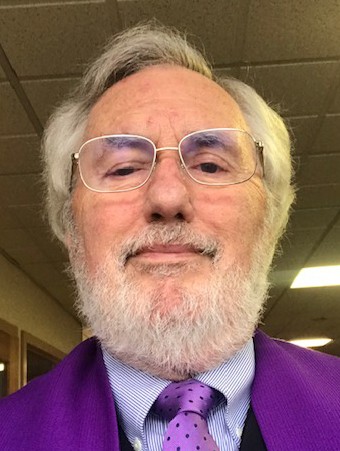Have evangelical leaders and Catholic bishops made a strategic blunder?
When they decided the cultural war battlefield needed to be the Supreme Court, they engaged in a decades-long battle to have the Supreme Court overturn Roe v. Wade. In the climactic battle of that portion of the cultural war, they won. The Supreme Court voted 6–3 last summer to overturn Roe.
But the conservative victory may have been like Bunker Hill for the British in the Revolutionary War.
Now, evangelical leaders and Catholic bishops are finally noticing a major flaw in this Supreme Court-or-bust strategy. They forgot about the millions of faithful Christians who are not in agreement with them.
“They forgot about the millions of faithful Christians who are not in agreement with them.”
Baltimore Archbishop William Lori, who headed the U.S. Conference of Catholic Bishops anti-abortion committee, and now is the group’s vice president, warned his colleagues: “The demise of Roe was a great victory, but it will be a pyrrhic victory if we fail to win the minds and hearts first and foremost of our fellow Catholics.” Bishops, he said “must encourage them to be closer in heart and mind to the church.”
Perhaps the bishop confesses more than he wishes or intends. His statement underscores that the mission of the church always has been winning the hearts and minds of people. Since politics has poisoned the evangelical churches and many Catholic parishes, there is not much emphasis on witnessing, only winning.
A political patchwork
On the political front, after Roe v. Wade was overturned, some states moved quickly to protect abortion rights. More than a dozen states have passed laws that will continue to protect a woman’s ability to access an abortion.
An analysis by the Guttmacher Institute finds another 22 states have laws in place to limit abortions, including 13 that have so-called “trigger bans” in place that almost immediately enact near-total bans on abortion now that Roe has been struck down.
Still, there are 16 states that protect abortion access under state law, either by guaranteeing the right to get an abortion up to a certain point in pregnancy or — in just four states and Washington, D.C. — protecting the right at any stage of pregnancy, according to Guttmacher.
Some state officials have reinforced their commitment to providing a haven for abortion-seekers and are bracing for the potential influx of abortion seekers from neighboring states with restrictive laws.
We are entering a precarious time for democracy. Our polarized politics will only worsen now that abortion will be a battle in every state.
David Brooks: “I used to support overturning Roe because I thought it would be healthy to get the abortion issue out of the courts and back to state legislatures. I used to think that most states would wind up where the nation’s center of gravity is — with restrictions but not bans. But we’re now trying to deal with a miserably complex issue in a brutalized political culture. Majorities don’t rule in this country; polarized minorities do. The evidence this week is that the post-Roe politics would make even our current politics seem tame. I’m not sure our democracy is strong enough for that.”
Losing public opinion
The evangelical preachers and Catholic bishops have won the abortion war at the Supreme Court, but not in the arena of public opinion. Today, a 61% majority of U.S. adults say abortion should be legal in all or most cases, while 37% think abortion should be illegal in all or most cases. And 56% of Catholics think abortion should be legal in most cases.
“The Supreme Court has no law they can enact that will stem the tide of Christians leaving the churches.”
As evangelicals and Catholics struggle with declining church attendance, at what point will attention shift from cultural and legal issues to evangelistic and shepherding ministries? The Supreme Court has no law they can enact that will stem the tide of Christians leaving the churches. They have no resources for the onward march of an encroaching secularism. The “hearts and minds” of the people should have been the primary target all along. This is not just a strategic blunder, but a blunder that threatens the authority of preachers and bishops.
When the battle was over gay marriage, the conservatives in the Protestant denominations believed the majority of the churches would follow them out of their historic ties to their respective denominations. Less than 5% of Episcopalians left the church over gays. As an Episcopal priest told me, “Episcopalians care more about ‘common prayer’ than they do about leaving the church over gay rights.” When the ECLA division occurred, approximately 10% of the Lutheran churches left the denomination. The Presbyterian Church USA, the UCC and the American Baptist Churches in the USA also have struggled with the issue of gay rights, ordination,and marriage, but the percentage of churches withdrawing from theses denominations is not as readily known.
The United Methodist Church, the largest of the mainline Protestant denominations, is gradually splitting in advance of the next General Conference. In two Texas conferences, the fracture has been much larger than in any of the other mainline denominations. The Northwest Texas Conference includes 200 churches from far West Texas up through the Panhandle. The Lubbock gathering included 145 of those churches that have left the UMC. Nearly half of the UMC congregations in East Texas (294 churches) voted to leave the denomination. And 249 North Carolina congregations have voted to leave the UMC. Fifty-eight of the 400 UMC churches in Louisiana have voted to leave the denomination.
Estimates of how many churches will leave the UMC are between 3,000 to 5,000. There are 30,543 churches in the UMC in the United States. When the slowly developing UMC division finally reaches its conclusion, the percentage of churches leaving will be comparable to the other mainline denominations. The conservatives, expecting a majority to follow them out the door, will be left with a small number in the 10% range.
A careful review of the history of denominational schisms would have given conservatives a more realistic picture. There have been conservative churches leaving their denominational homes in previous decades. Baptists have been particularly prone to splits. In 1936, the General Association of Regular Baptist Churches, North, split off from the Convention. By 2005, the GARBC had 132,000 members. In 1946, the Conservative Baptist Association of America split off from the Convention. In 1992, the group reported 200,000 members. Lutheran and Presbyterian churches have previously split and formed the Presbyterian Church in America and the Missouri Synod of Lutheran Churches. Denominational splinter groups have struggled to reach new members and attract new congregations. Some splinter groups have encountered additional splits as arguments continue to polarize the discontented people who left their previous church homes.
More reasons to leave church
Will it turn out that the culture wars over abortion and gays was mostly fueled by a polarized minority — many of them pastors and Catholic priests and bishops? Will the people in the pews find a way to speak? Or will they continue to drift away?
Already there is a noticeable migration of conservative members of mainline churches leaving to become members of even more conservative and politically active churches. This movement drives the Christian nationalism that now flourishes in our politics.
“No amount of praise music, declarations of welcome and hospitality and insistence that everyone is loved and accepted will remove the stench of intolerance.”
Failure to reach the hearts and minds of the faithful may place evangelicals and Roman Catholics in the most precarious position they have ever encountered. When churches are perceived to be intolerant, non-accepting of others, no amount of praise music, declarations of welcome and hospitality and insistence that everyone is loved and accepted will remove the stench of intolerance.
One hundred years ago, Harry Emerson Fosdick, facing the same kind of questions over different issues, asked: “Has anybody a right to deny the Christian name to those who differ with him on such points and to shut against them the doors of the Christian fellowship? The fundamentalists say that this must be done. In this country and on the foreign field they are trying to do it. They have actually endeavored to put on the statute books of a whole state binding laws against teaching modern biology. If they had their way, within the church, they would set up in Protestantism a doctrinal tribunal more rigid than the pope’s. In such an hour, delicate and dangerous, when feelings are bound to run high, I plead this morning the cause of magnanimity and liberality and tolerance of spirit. I would, if I could reach their ears, say to the fundamentalists about the liberals what Gamaliel said to the Jews, ‘Refrain from these men and let them alone; for if this counsel or this work be of men, it will be overthrown; but if it is of God ye will not be able to overthrow them; lest haply ye be found even to be fighting against God.’”
What shall it profit evangelicals and Catholics if they win the cultural wars on every issue and lose their congregations? Who in the churches can claim victory if the trend continues of people leaving church not for other churches, but for no church at all?

Rodney Kennedy
Rodney W. Kennedy is a pastor in New York state and serves as a preaching instructor at Palmer Theological Seminary. He is the author of nine books, including the newly released The Immaculate Mistake, about how evangelical Christians gave birth to Donald Trump.
Related articles:
Roe v. Wade, the great divider | Analysis by Erich Bridges
Majority of Americans oppose overturning Roe v. Wade
These Christians are leaving behind the church, but not their faith | Analysis by Mallory Challis


